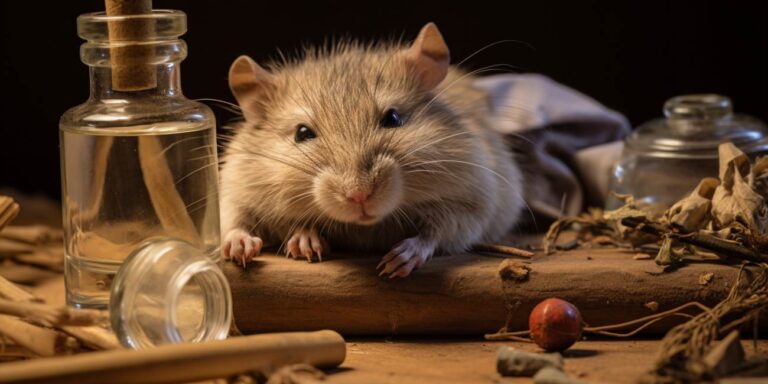If you’re a devoted gerbil owner, you understand the importance of ensuring your furry friends are happy and healthy. Unfortunately, like all living creatures, gerbils can face health issues. Recognizing the signs of ailing gerbils is crucial to providing them with the necessary care. In this comprehensive guide, we’ll explore the common symptoms of a dying gerbil, potential causes, and steps you can take to address these issues.
Common dying gerbil symptoms
Gerbils, being small and fragile creatures, can display various symptoms when they’re unwell. It’s essential to be vigilant and observant to catch these signs early on. Here are some of the most common symptoms that may indicate your gerbil is in distress:
-
**Lethargy:** A lethargic gerbil may appear sluggish, uninterested in activities, and may spend more time sleeping than usual.
-
**Weight Loss:** A noticeable drop in weight can be a sign of underlying health problems. Monitor your gerbil’s weight regularly to spot any changes.
-
**Loss of Appetite:** A gerbil that refuses to eat or drink for an extended period may be suffering from illness.
-
**Labored Breathing:** If your gerbil is breathing rapidly, wheezing, or showing other signs of respiratory distress, it’s cause for concern.
-
**Dull Fur:** Healthy gerbils have shiny, vibrant fur. Dull, matted fur can indicate health issues.
-
**Hunched Posture:** A gerbil that’s constantly hunched over may be in pain or discomfort.
-
**Seizures:** Uncontrolled movements or seizures are severe and should be addressed immediately.
If you notice one or more of these symptoms in your gerbil, it’s essential to take prompt action to assess their condition and seek professional veterinary advice if needed.
Possible causes of dying gerbil symptoms
Understanding the potential causes of your gerbil’s symptoms is the first step in providing appropriate care. Several factors can contribute to a gerbil’s declining health:
-
**Infection:** Gerbils can contract various infections, including respiratory infections and abscesses.
-
**Parasites:** External parasites like mites or internal parasites can affect a gerbil’s well-being.
-
**Dental Problems:** Overgrown teeth or dental issues can lead to weight loss and difficulty eating.
-
**Old Age:** Gerbils have a relatively short lifespan, and age-related health problems can occur.
-
**Stress or Environmental Factors:** Changes in their environment or social stress can impact a gerbil’s health.
-
**Injury:** Accidental injuries can result in symptoms like lethargy and hunched posture.
Identifying the underlying cause of your gerbil’s symptoms can guide your veterinarian in creating an effective treatment plan.
Steps to address dying gerbil symptoms
When you suspect your gerbil is unwell, here are steps you can take to help address their symptoms and improve their chances of recovery:
-
**Isolate the Gerbil:** If you have multiple gerbils, separate the sick one to prevent the potential spread of disease.
-
**Consult a Veterinarian:** Seek professional guidance from an experienced veterinarian who specializes in exotic pets.
-
**Provide a Comfortable Environment:** Ensure your gerbil’s cage is clean, warm, and free from drafts. Maintain a proper diet and fresh water supply.
-
**Administer Medications:** If prescribed by your vet, follow the medication regimen carefully and monitor your gerbil’s progress.
-
**Offer Support:** Be gentle and provide comfort to your gerbil by offering soft bedding and a stress-free environment.
Remember that gerbils can deteriorate quickly when unwell, so prompt action is essential to give them the best chance of recovery.
Q1: can i treat my dying gerbil at home?
A1: While you can provide basic care, it’s crucial to consult a veterinarian for a proper diagnosis and treatment plan. Some illnesses require professional intervention.
Q2: should i quarantine a sick gerbil?
A2: Yes, isolating the sick gerbil can prevent the potential spread of disease to healthy gerbils in the same enclosure.
Q3: how can i prevent gerbil health issues?
A3: Maintain a clean habitat, provide a balanced diet, and ensure your gerbils have a stress-free environment. Regular vet check-ups can also help catch issues early.
By recognizing the symptoms of a dying gerbil, understanding potential causes, and taking appropriate steps, you can give your pet gerbil the best chance at recovery and a happy, healthy life.
See also:





